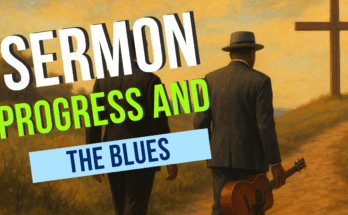As an Amazon Associate I earn from qualifying purchases.
The Theocentric Preaching blog has an interesting post on how to avoid the “Homiletic Hermeneutic.” The homiletic hermeneutic is one where the homiletical impulse overpowers the original meaning of the text. In it the author quotes the Expository Thoughts blog, which quotes Daniel I. Block, by giving 6 characteristics that show evidence of using a “homiletical hermeneutic.”
As an African American student of homiletics, I would say that I think it is valuable to struggle with the text and not be satisfied with culling 3 easy points from the surface of a text. This caution from Block would help to work against such a problematic effort.
In addition, I also like how block in point 4 recognizes that if sufficient work is not done one can easily read ones own cultural and national biases into the text and assume that it is the “Bible Truth.” That is also helpful.
One caution I would have however is that we not forget the value of homiletics to hermeneutics. For example, struggling with the text takes on added meaning when we have to present our findings to someone else in coporate worship.
Also I would argue that different aspects of the sermon may be helpful in a particular climate or culture or time that may not be as helpful when you are at home studying for personal edification. This difference will force us to go to the text with more eyes and needs than just our own which could possibly give a homiletic hermeneutic an advatage.
The point about paying too much attention to secondary sources is a problem for preachers, but I would argue that it is a problem for anyone who is studying the Bible except for possibly devotional reading of the text.
Finally, the point about overemphasis on rhetoric and memorability, I think assumes that content is disconnected from rhetoric. However, I would argue that rhetoric is an inseperable component of the full message. In other words if one is preaching the poetic psalms then I would assume that your rhetoric would be in line with the literature if you are to be true to it. Thinking about how to embody the text as some preachers do (and some might call consideration of rhetoric) I think helps the preacher to understand the text better. In other words, I think that rhetorical devices are important to think through to insure that one is true to the text.
All in all though, I read this as a caution not to take shallow thinking into the pulpit, such a call is always warranted.
Amazon and the Amazon logo are trademarks of Amazon.com, Inc, or its affiliates.




